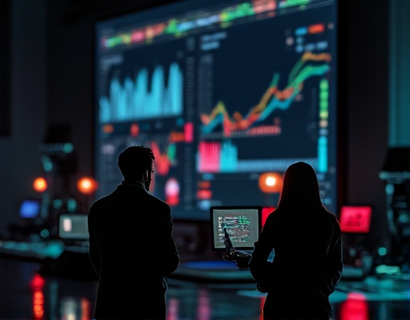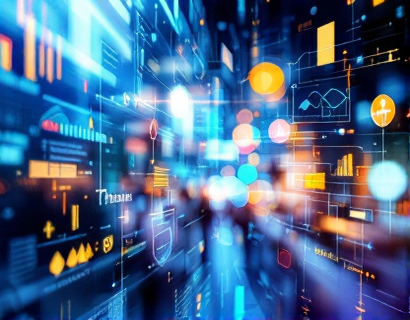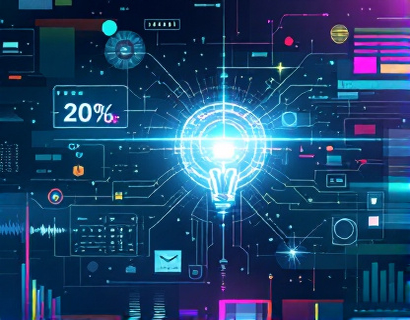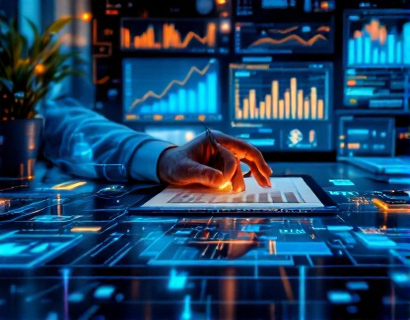Transforming Digital Experiences: The Synergy of Crypto and AI
The intersection of cryptocurrency and artificial intelligence (AI) is giving rise to a new era of digital innovation, where user engagement and satisfaction are reaching unprecedented levels. This fusion is not just about combining two cutting-edge technologies; it's about creating a seamless, secure, and highly personalized digital experience. As we delve into this topic, we will explore how these technologies are reshaping the tech ecosystem, focusing on connectivity, growth, and enhanced user satisfaction through advanced solutions.
Understanding the Basics: Crypto and AI
To fully appreciate the impact of crypto and AI on digital experiences, it's essential to understand the fundamentals of both technologies. Cryptocurrency, often referred to as digital or virtual currency, uses cryptography for security and operates on a decentralized network, typically a blockchain. This decentralized nature ensures transparency, security, and reduces the need for intermediaries, making transactions faster and more cost-effective.
Artificial intelligence, on the other hand, involves the simulation of human intelligence processes by machines, particularly computer systems. These processes include learning (the acquisition of information and rules for using it), reasoning (using rules to reach approximate or definite conclusions), and self-correction. AI can operate autonomously or be guided by human input, and it is increasingly being integrated into various aspects of digital life, from virtual assistants to complex data analysis.
Enhancing Connectivity through Blockchain and AI
The combination of blockchain and AI is revolutionizing connectivity in the digital world. Blockchain provides a robust, tamper-proof ledger for transactions, while AI enhances the efficiency and security of these transactions. For instance, AI algorithms can analyze patterns in blockchain data to predict and prevent fraudulent activities, ensuring a safer environment for users. This synergy also extends to smart contracts, which are self-executing contracts with the terms directly written into code. AI can optimize the execution of these contracts by analyzing conditions in real-time, making the process more dynamic and responsive.
Moreover, AI-driven analytics can help in understanding user behavior and preferences on blockchain-based platforms. By analyzing vast amounts of data, AI can identify trends and patterns that inform the development of more user-friendly and efficient services. This enhanced connectivity not only improves user experience but also fosters a more interconnected and collaborative digital ecosystem.
Personalization at Scale: AI-Driven User Experiences
One of the most significant benefits of integrating AI with cryptocurrency is the ability to deliver highly personalized experiences to users. Traditional digital platforms often struggle with providing a one-size-fits-all approach, leading to a disengaged user base. AI, however, can analyze individual user data to create tailored experiences that meet specific needs and preferences.
For example, in the realm of decentralized finance (DeFi), AI can analyze a user's financial behavior and recommend customized investment strategies. By leveraging machine learning algorithms, these platforms can adapt to changing market conditions and user preferences, offering real-time advice and insights. This level of personalization not only enhances user satisfaction but also increases engagement and loyalty to the platform.
Furthermore, AI can enhance the user interface and experience (UI/UX) of crypto applications. Natural language processing (NLP) and machine learning can power chatbots and virtual assistants that provide instant, context-aware support. These AI-driven interfaces can understand and respond to user queries in a human-like manner, making the interaction more intuitive and seamless.
Security and Trust: AI-Enhanced Crypto Security
Security is a paramount concern in the crypto space, and AI plays a crucial role in bolstering it. Traditional security measures can be static and vulnerable to sophisticated attacks. AI, however, offers dynamic and adaptive security solutions. By continuously learning from new data, AI can detect and respond to threats in real-time, significantly reducing the risk of breaches and fraud.
For instance, AI-powered anomaly detection systems can identify unusual patterns in transaction data, flagging potential security threats before they become problematic. Additionally, AI can enhance the authentication process through biometric verification and behavioral analysis, ensuring that only authorized users access sensitive information. This heightened security not only protects users but also builds trust in the crypto ecosystem, encouraging more widespread adoption.
Optimizing Operations: AI in Crypto Infrastructure
The operational efficiency of crypto platforms is another area where AI shines. Managing blockchain networks, especially those using proof-of-work (PoW) consensus mechanisms, requires significant computational power and energy. AI can optimize these processes by predicting network congestion, adjusting resource allocation, and improving the overall performance of the blockchain. This optimization not only reduces costs but also minimizes the environmental impact of crypto operations.
Moreover, AI can streamline the development and maintenance of smart contracts. By analyzing code patterns and identifying potential vulnerabilities, AI tools can help developers write more secure and efficient smart contracts. This reduces the risk of bugs and errors, ensuring smoother and more reliable transactions.
Market Insights and Predictive Analytics
AI-driven market insights are transforming how users interact with crypto assets. Traditional market analysis relies heavily on historical data and expert opinions, which can be limited in scope and accuracy. AI, however, can process and analyze vast amounts of data from various sources, including social media, news feeds, and market trends, to provide comprehensive and real-time insights.
These insights can help users make more informed decisions, from timing trades to identifying emerging trends. Predictive analytics powered by AI can forecast market movements with greater accuracy, giving users a competitive edge. This level of market intelligence not only enhances user engagement but also contributes to the overall growth and stability of the crypto market.
Community and Governance: AI in Decentralized Decision-Making
The decentralized nature of crypto platforms extends to governance, where AI can play a pivotal role in community-driven decision-making. Traditional governance models often face challenges in ensuring fair and transparent processes. AI can facilitate more democratic and efficient governance by analyzing community feedback, identifying consensus points, and suggesting actionable solutions.
For example, AI can analyze voting patterns and sentiment within a community to predict the outcomes of proposals, helping to streamline the decision-making process. This not only enhances the efficiency of governance but also ensures that the voices of all community members are heard and considered, fostering a more inclusive and collaborative environment.
Future Prospects: The Evolution of Crypto and AI
As we look to the future, the integration of crypto and AI is poised to bring even more innovative solutions to the digital landscape. One area of excitement is the development of decentralized AI models, where AI algorithms are trained and run on decentralized networks. This approach can enhance privacy, reduce central points of failure, and democratize access to advanced AI capabilities.
Another promising direction is the convergence of blockchain and the Internet of Things (IoT). AI-powered blockchain solutions can secure and optimize the vast amounts of data generated by IoT devices, enabling more intelligent and autonomous systems. This synergy has the potential to revolutionize industries ranging from healthcare to smart cities, creating a more interconnected and efficient world.
In conclusion, the fusion of cryptocurrency and AI is not just a technological advancement; it's a transformative force that is reshaping the digital experience. By enhancing connectivity, personalization, security, and operational efficiency, these technologies are driving growth and engagement in the tech ecosystem. As we continue to explore and innovate at this intersection, the possibilities for enhanced user satisfaction and new digital frontiers are endless.










































